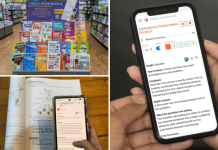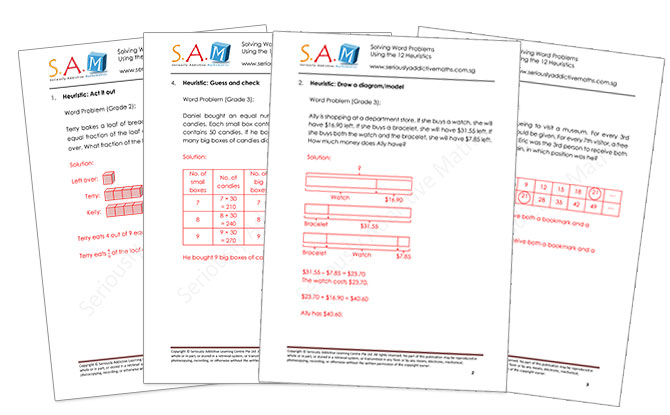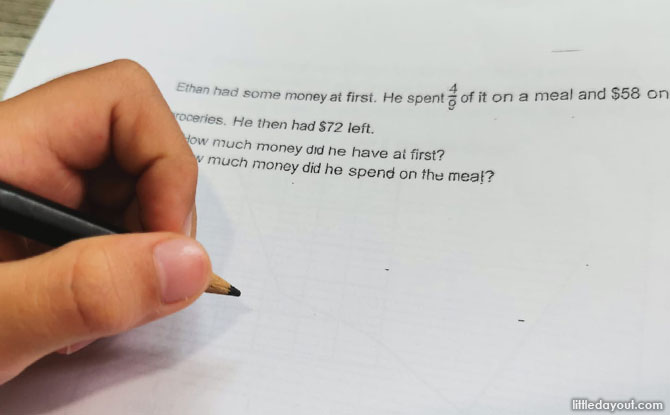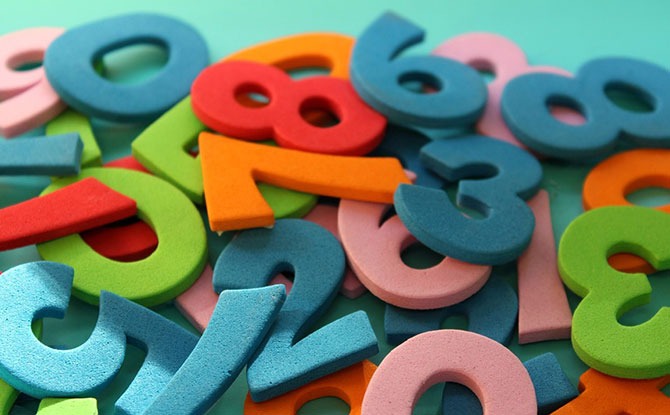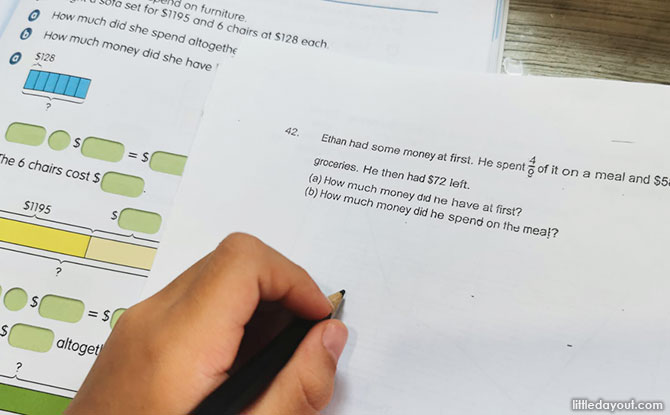
Having two children who have been through primary school, I can empathise with students who complain that primary Math word problems appear daunting.
At times, Math word problems come across as mental gymnastics; for example, students have to keep track of Helen, Ivan and their hoard of coins. Other problems seem more like logic tests, requiring them to solve what may seem like impossible conundrums.
However, hindsight is 20/20 and, looking back, life would have been easier for my own kids if they had known some key things about solving Math word problems.
Here are some tips on Math word problems which I can share with you now.
CARNIVAL OF CHRISTMAS CHEER: Celebrate and Win at Plantation Plaza and Northshore Plaza!
SNOW MUCH TO CELEBRATE: Christmas Fun at The Centrepoint
Tips for Solving Math Word Problems
1. Start with a Positive Attitude
Success begins with the right attitude. This is the key to learning anything, especially Math.
Unfortunately, when some students encounter difficulty with Math, they set up barriers in their minds towards the subject. These can result in a self-fulfilling prophecy that they are bad at Math. Eventually, this leads to a downward spiral in their relationship with the subject.
If a student has a negative outlook towards Math, a reset may be required. He or she should be encouraged to put away negative thoughts and approach the subject with a fresh perspective.
Students need to recognise that it takes time to understand how to tackle word problems. To encourage them, ask them to look back at other things which they learnt or accomplished in the past. For example, picking up a sport or learning a new skill also takes time. They can draw encouragement that if they have been able to learn a sport or hobby, they can likewise learn to conquer Math word problems.
Also, little successes, no matter how small, should also be celebrated. These small victories are milestones they can look back on as they progress in their Math journey.
Over time, a positive attitude, along with perseverance and encouragement, will yield results.
2. Know the 12 Problem Solving Heuristics
Math heuristics can sound like an intimidating word. However, it actually just refers to strategies which students can use to solve Math word problems.
Unlike in the past where Math involved a lot of memorisation of formulae, present-day primary school Math focuses on the application of problem-solving techniques or heuristics. Math word problems can be solved using one or a combination of these heuristics.
Thankfully, there are only 12 heuristics that primary school students need to be familiar with. These are:
- Act it out
- Draw a diagram/model
- Draw a table
- Guess and check
- Look for patterns
- Make a systematic list
- Make suppositions
- Restate the problem in another way
- Simplify the problem
- Solve part of the problem
- Use before-after concept
- Work backwards
Download a Heuristics “Cheat Sheet”
You can find out more about Math heuristics (courtesy of Seriously Addictive Mathematics) for you and your child can use to gain a better understanding of each of them.
3. Use the 4-Step Problem Solving Process
Knowing the 12 strategies or heuristics is just the start. It is equally, if not more, important that students know how to interpret word problems and then choose which heuristic to apply.
To do so, students can adopt the 4-step problem solving process:
• Understand the problem
• Choose the strategy or heuristic
• Solve the problem
• Check
The first step in the problem-solving process is to understand the question.
A word problem can consist of multiple sentences, each containing snippets of information. For some students, the fragmented presentation of information can come across as intimidating. The best way to tackle the problem to break it down sentence by sentence.
Start by reading it once through. Then, read it again and pause after each sentence to understand the meaning and take it in. Jot down notes or underline the critical pieces of information presented in each sentence. Also, pay close attention to what the question is asking for as the answer.
Doing these steps allow the student to focus on what is important.
Next, choose which strategy or heuristic applies to the problem. For example, would it help to draw a model to visualise the problem? Or can it be solved by the guess-and-check method?
Once the strategy has been decided on, work out the solution to the problem step-by-step, being sure to write each working step clearly.
The last step is to check the answer. This can be done by applying the worked answer back to the question to make sure it is correct.
4. Practise Often
“Practise makes perfect” is a saying that applies to Math word problems. The more a student practises, the more familiar he or she will with the possible types of word problems he or she may encounter.
With greater exposure to different word problems, students will be able to decide which heuristic should be applied in which situation. Consistent practice will allow him or her to sharpen his or her Math skills and acumen, becoming faster and more accurate in problem-solving.
Students will also benefit from exposure Math word problems of varying levels of difficulty. Start with basic problems but once those have been mastered, he or she can move on to intermediate or more advanced questions.
Many assessment books have problems with different levels of difficulty so that students can be challenged and levelled up.
With diligent practise over time, students will grow in their ability to tackle Math word problems with confidence.
Seriously Addictive Mathematics (S.A.M): The Thinking Math Programme
If you need a trusted and Math enrichment centre to help your child with his or her Math journey, you may wish to consider Seriously Addictive Mathematics (S.A.M).
Established in Singapore in 2010, S.A.M caters to children between the ages of 4 to 12 years old. It has since grown to become the world’s largest Singapore Math enrichment programme for 4 to 6 year olds with more than 200 centres in 20 countries and counting.
S.A.M is different from other Math enrichment providers because of its emphasis on developing interest and understanding in Math instead of memorisation and drilling to chase grades. It has a strong focus on curriculum and its coaching approach enables children to develop a positive attitude and build a strong foundation in math.
Its Math curriculum was developed by a team of former school teachers and textbook authors and is 100% aligned with the Singapore MOE syllabus. The curriculum focuses on developing thinking and problem-solving skills. Students are explicitly taught how to apply heuristics and a 4-step process to solve different types of word problems they may encounter.
To make things engaging for its students, S.A.M make use of physical manipulatives which students can use to learn different math concepts. These hands-on activities take Math off the page and help to make learning Math fun.
Concepts are also reinforced through worksheet practices done in class and at home to ensure mastery. Each student also gets a personalised learning plan to help him or her along at a right pace.
Furthermore, S.A.M has 10 locations all over Singapore. This is means that there is always a Seriously Addictive Mathematics centre conveniently located near you.
If you are interested to find out if S.A.M is right for your child, you can book a free Math Readiness Assessment (worth $60) to get an assessment of your child’s current Math abilities. The assessors will also be able to share with you areas in which your child can improve.
To find out more about Seriously Addictive Mathematics and book a free Math Readiness Assessment, visit the website here.
This feature is brought to you by Seriously Addictive Mathematics.




